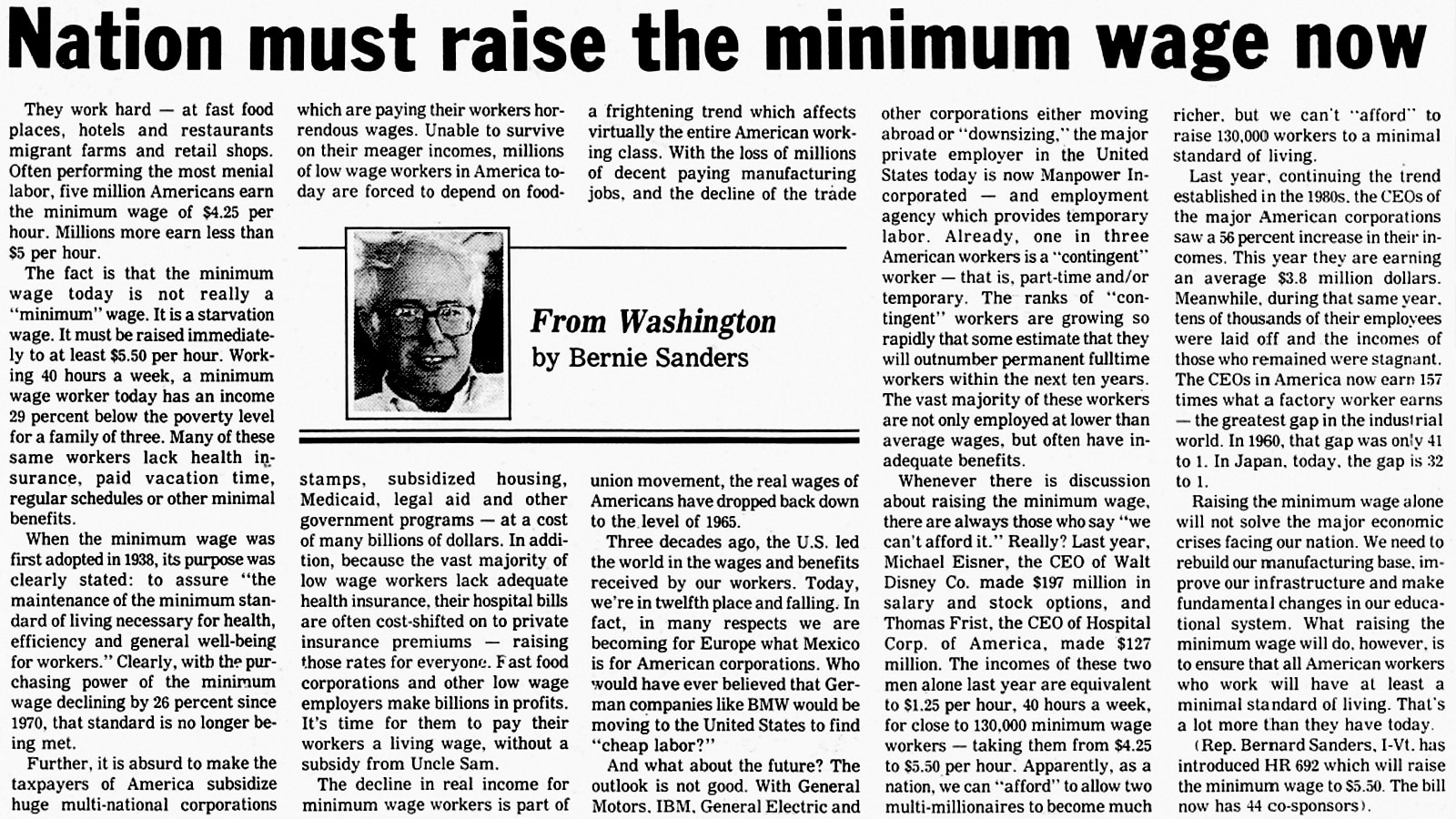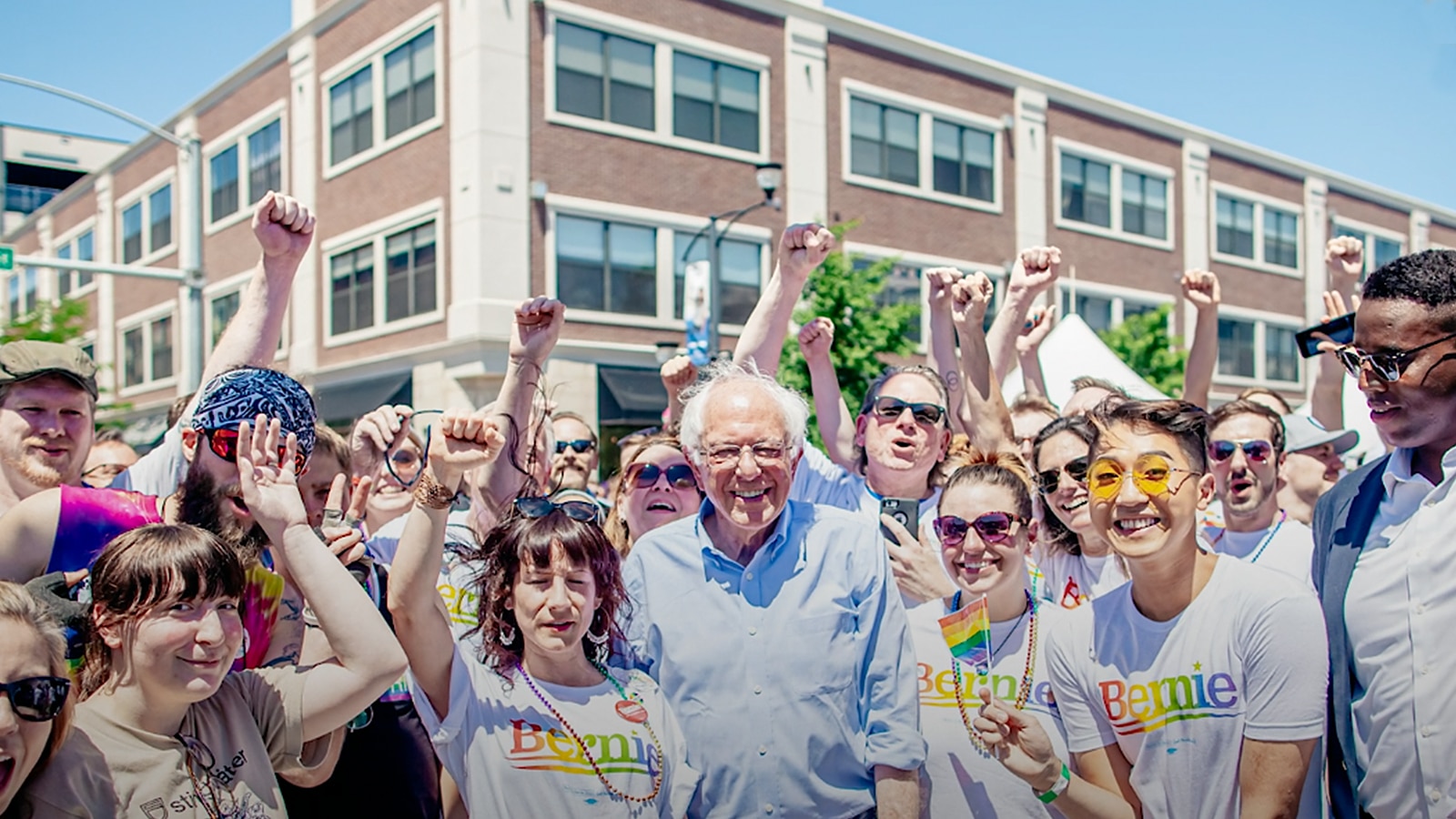In 1993, Rep. Bernie Sanders introduced the Living Wage Act (HR 692) to raise the minimum wage from $4.25 to $5.50 per hour. Over 44 House co-sponsors signed on in support of HR 692, despite the Clinton Administration’s decision to delay going forward on minimum wage legislation.
In a congressional press release, Sanders stated, “Five million American workers today earn the minimum wage of $4.25 an hour, and millions more earn less than $5.00 an hour. These workers have been waiting for years for the government to protect them, to force their employers to pay them a living wage. We cannot desert them. We must move forward on this life and death issue as soon as possible.”[1]
Bernie also scheduled a series of hearings around Vermont to gather testimony and information from citizens about how a low minimum wage affects their lives and the Vermont economy.[1]
Sanders also noted that the CEOs of major American corporations saw a 56% increase in their incomes last year. They now earn an average of $3.8 million. The CEOs in America now earn 15 7 times what a factory worker earns, the most significant gap in the industrial world.[2]
“We must fully appreciate that the minimum wage today is not a minimum wage. It is a starvation wage. Working 40 hours a week, a minimum wage worker has an income 29% below the poverty level for a family of three. Many workers lack health insurance, paid vacation time, regular schedules, or other minimal benefits.”[2]
“Whenever there is a discussion about raising the minimum wage, there are always those who say “we cannot afford it.” I find that rather extraordinary. Last year, Michael Eisner, the CEO of Walt Disney Co., made $197 million in salary and stock options, and Thomas Frist, the CEO of Hospital Corp. of America, made $127 million. The incomes of these two men alone· last year are equivalent to $1.25 per hour, 40 hours a week, for close to 125,000 minimum wage workers – taking them from $4.25 to $5.50 per hour. As a nation, we can “afford” to allow two multi millionaires to become much richer, but we cannot ‘afford’ to raise 125,000 workers to a minimal standard of living.”[2]
Bernie continues to fight for increased wages for Americans to this day, as companies still pay employees starvation wages, despite record profits and massive executive salaries.
 Back to Timeline
Back to Timeline


